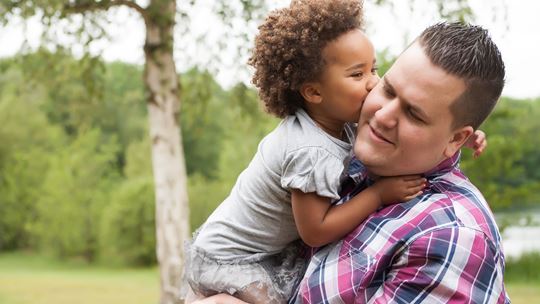Fostering is when someone takes another parent’s child into their home and looks after them, because this child isn’t able to live with their birth parents. The most common reason for this is that the child is at risk from abuse or neglect.
Other reasons include family breakdown caused by domestic violence or financial troubles for example, or because a parent suddenly becomes ill. Whatever the reason, the child needs to be protected and cared for in a safe, loving environment while the local authority – which takes on responsibility for caring for the child – tries to get the child back with their family. This can happen quickly, but sometimes it’s not possible to return a child to their family at all. So fostering placements can vary in length from a couple of weeks through to several years.
Foster parents generally choose to specialise in one or more types of fostering, including short-term, long-term or respite care and given a fostering allowance for each child in their care.
Think you’re ready to foster?
Find out everything you need in order to become a foster parent, or feel free to get in touch with any questions

Who can foster?
Fostering is open to anyone and everyone, from any faith, cultural background or walk of life. Learn more about what is required to become a foster parent.
Read More
Types of fostering
No one child is the same, so we offer a range of fostering types to suit the needs of children and foster families.
Read More
How to become a foster parent
Learn exactly how to the journey to becoming a foster parent works
Read More
Faith-based Foster Care
We believe that the best outcomes for children are achieved by finding foster parents who best understand the needs and experiences of the children in their care.
Read More

Why do children need foster care?
There are many reasons which bring children into foster care, but they all have one thing in common - to keep a child safe.
Read More
How is fostering different to adoption?
There are a number of differences. Adoption is a permanent legal arrangement, where the adoptive parents become fully responsible for the child and can make and take decisions on their behalf up to the age of 18. They become the legal guardians and are financially responsible for the child they have adopted. Fostering is seen as more temporary, even though some children can stay with their foster parents until they reach independence, a foster parents doesn't have legal responsibility for the child, which remains with the child’s birth parents or the local authority. Foster parents need to seek permissions to make significant decisions on the child’s behalf. Although, we will always work towards our foster parents gaining deligated authority, especially for longer term placements, as this can help children significantly to live a more normal life. Foster parents receive an allowances while a child is in their care, and typically foster a number of children during their fostering careers.
What does a foster parent do?
Foster parents provide a safe, loving home and nurture vulnerable children, helping them understand their past and build for the future. They make sure they get the most out of their education, and give them valuable opportunities in life, including play, fun activities and holidays. They teach them practical life-skills, and act as role models. They also keep records of each child’s achievements and, where possible, make sure they keep in contact with their birth parents. It’s highly rewarding work but it’s a full-time commitment with many challenges along the way. We’re always looking for more people to join our team.
How do people become foster parents?
Anyone can be considered to become a foster parent, so long as they’re aged 21+, have a right to live and work in the UK and have a spare room in their house. Foster parents have to be trained and approved before they’re able to take in a child. Once approved our foster parents will be given our Ofsted rated 'outstanding' support.
Over the years, we have developed our services to support foster parents, foster children and of course local authorities who place many of their children with us. We have good relationships with these placing authorities, and we work well together in providing the right support for children and young people.
Our experience is that local authorities find it much easier to place very young children with their own foster carers, and as such look to independent fostering agencies, like ACS to find suitable foster homes for slightly older children and teenagers. However, because of the specialist faith and cultural placements we provide at ACS, we recieve referrals for children of all ages.
Generally speaking, specialist fostering agencies are able to offer more enhanced rewards and financial incentives than local authorities.
What is fostering?
Sometimes, because of a family illness, a family breakdown or problems at home, a young person will come into the care of the local authority where they live. That local authority then looks for a placement for the young person that is most appropriate for the child. In doing so, they’ll turn to foster parents within their own fostering service or with a fostering provider like ACS.
What is the process of becoming a foster parent?
To become a foster parent, the first step is to get in touch with us. We'll have a chat with you first, then visit you at home before starting an assessment. The whole process takes 4 - 6 months.
What is the difference between fostering and adoption?
When you foster a child, you are caring for them but they are not legally part of your family, which when you adopt you become a child's legal guardian.
Do I get any breaks or holidays while fostering?
Yes, all of our foster parents can receive 14 days paid respite, not all of our families take this in which case they receive the respite payment in their weekly fostering allowance.
What kind of support will I receive?
As an Outstanding fostering agency, we’re committed to offering you all the support you need to succeed – 24 hours a day, 365 days a year. As a foster parent, you have a vital role in helping looked-after children achieve their full potential. We believe that by passing on our knowledge and experience to you, you’ll be able to make an even bigger difference to the lives of the children in your care. Cultural-specific training is at the core of what we do. We assist foster parents in learning new skills and working to improving their specialist knowledge.
Will I receive training about different faiths and ethnicities?
Yes, cultural-specific training is at the core of what we do. We assist foster parents in learning new skills and working to improving their specialist knowledge, so they are able to care for the children and young people they look after as well as possible, even if that child is of a different faith or ethnicity.
Our foster parents are encouraged to attend specialist training and support groups where they can develop their knowledge of different faiths and religions, and share cultural insights.
Our faith-based training programme to equip foster parents with the skills necessary to support children with a wide variety of cultural and religious needs.
The training we provide teaches foster parents how to respond to the individual needs of foster children from vastly different backgrounds, who will all have a unique set of needs.
What is faith-based fostering?
As a faith-based fostering agency, we put cultural diversity at the heart of our services. An increasing number of children and young people coming into care are from multi-faith communities – and there is a lack of placements available to meet their specific needs. That’s where we come in!



